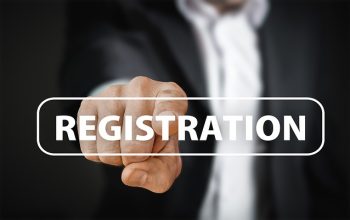Before diving into the used car market, conducting a meticulous vehicle ownership verification is paramount. A simple car registration number search or DMV registration lookup can reveal critical information about a vehicle’s past, including accidents, outstanding liens, and previous owners.
This article explores the significance of such checks, delving into powerful tools like license plate lookup and ownership verification by VIN to ensure you make informed decisions when purchasing a used vehicle, avoiding potential scams and securing a safe investment.
- Understanding the Importance of Vehicle Ownership Verification
- Tools for Comprehensive Car Registration Status Check
- Uncovering Vehicle History: From License Plate Lookup to VIN Verification
Understanding the Importance of Vehicle Ownership Verification

Before diving into the world of used car purchases, it’s crucial to comprehend the immense value of vehicle ownership verification. This process goes beyond a simple visual inspection; it involves delving into the vehicle’s history through official channels. By conducting a car registration status check or utilizing tools like DMV registration lookup and license plate lookup, potential buyers gain access to critical data that could otherwise remain hidden. Such information includes any outstanding liens, past accidents, or undisclosed repairs—details that are essential for making an informed decision.
A thorough vehicle ownership verification process ensures transparency and helps prevent common scams. For instance, a vehicle title check can reveal if the car has been reported stolen or if there are pending legal issues. Ownership verification by VIN (Vehicle Identification Number) provides even more detailed insights into the vehicle’s service history, maintenance records, and any previous owners. This level of scrutiny is instrumental in ensuring buyers avoid costly surprises and end up with a reliable used car that aligns with their needs and expectations.
Tools for Comprehensive Car Registration Status Check

When it comes to checking a car’s registration status, buyers have several powerful tools at their disposal. A DMV registration lookup or car registration number search allows individuals to query government databases and gain access to critical vehicle details. These checks reveal the car’s current registration status, its history of ownership, and any outstanding issues like liens or recalls.
For an even more in-depth analysis, leveraging tools like license plate lookup and ownership verification by VIN is highly recommended. The Vehicle Identification Number (VIN) acts as a unique fingerprint for each vehicle, providing access to detailed information such as the make, model, year, and previous owners. This level of scrutiny ensures buyers are fully informed about the car’s past, helping them avoid potential scams or hidden problems associated with vehicles that have been in accidents or had outstanding registration issues.
Uncovering Vehicle History: From License Plate Lookup to VIN Verification

Uncovering a vehicle’s history is a crucial step before bringing it home. A simple license plate lookup can provide initial insights, but for a complete picture, diving deeper into ownership verification is essential. Tools like DMV registration lookups and car registration number searches allow buyers to access detailed records, including the vehicle’s past owners, service history, and any reported accidents or damages.
By cross-referencing these sources, potential buyers can confirm the car’s authenticity and avoid scams. Moreover, a thorough vehicle title check reveals any existing liens, outstanding fines, or registration issues that could affect ownership transfer. Ownership verification by VIN (Vehicle Identification Number) offers an even more comprehensive view, providing access to manufacturing details, recall information, and accident history not visible through other means.
Before making a significant investment in a used vehicle, conducting a thorough vehicle ownership verification is crucial. By leveraging tools like license plate lookups and Vehicle Identification Number (VIN) checks, buyers can gain access to detailed car registration status, uncover past accidents, and verify any outstanding liens or legal issues. These comprehensive steps ensure informed decisions, mitigate potential scams, and provide peace of mind for both buyers and sellers in the used car market.



